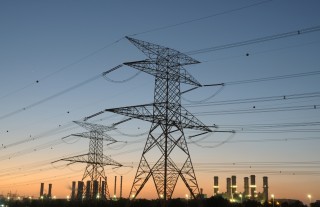The analysis of data obtained from the Nigerian Electricity Regulatory Commission (NERC) has shown the country will record a tariff shortfall of N545 billion in 2020. This followed a directive by the NERC on Saturday to 11 electricity distribution companies in the country to increase their tariffs beginning from April.
Under the new tariff, residential customer category (R3), in the Ikeja Disco who currently pays N26.5 per kilowatt/hour, will start paying N36.49 per kilowatt/hour beginning from April, indicating an increase of N9.99.
Similarly, residential customers in Ibadan, Kano, and Port Harcourt Discos, who currently pay N29.17 per kilowatt/hour, N24,43 per kilowatt/hour and N27.49 per kilowatt/hour, will from April start paying N44.66 per kilowatt/hour, N42.63 per kilowatt/hour and N48.39 per kilowatt/hour, respectively. The increases in their respective tariffs include N15.49, N18.2 and N20.9.
Commercial customers in the C3 category under Disco, who currently pay N24.63 per kilowatt/hour, will also start paying N38.41 per kilowatt/hour, representing a hike of N13.78.
Industrial customers in the D3 category in Ikeja Disco currently paying N25.82 per kilowatt/hour has also increased to N38.85 per kilowatt/hour. This change is represented by an increase of N13.03.
Commercial customers in the C3 category for Ibadan, Kano and Port Harcourt Discos, who currently pay N27.11per kilowatt/hour, N22.71 per kilowatt/hour and 25.14 per kilowatt/hour, will from April pay N42.03 per kilowatt/hour, N40.27 per kilowatt/hour and N48.39 per kilowatt/hour, respectively.
This means that power tariffs in Nigeria have increased by over threefold in the last five years.
Organized Labour has expressed discontent with the introduction of the new tariff. Some Industrialists and civil right groups are lamenting the huge estimated bills which according to them is not justifiable.
Labour described the hike as a daylight robbery, considering the epileptic power supply in the country. “We are all aware of how epileptic the electricity supply is in the country. We have yet to get value for the money Nigerians to pay on the electricity bill. Why increasing the tariffs when the supply is not stable and consistent? The government does things before thinking of their implications, otherwise, there is no basis for the increase in electricity tariffs for now.”
The Lagos Chamber of Commerce and Industry, on its part, frowns at the Federal Government’s decision for increasing the tariffs and doing nothing about estimated billing by power distribution companies.
Story by: Ahmed Iyanda








